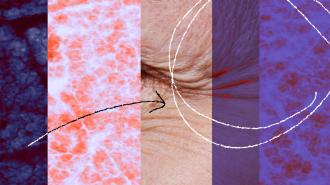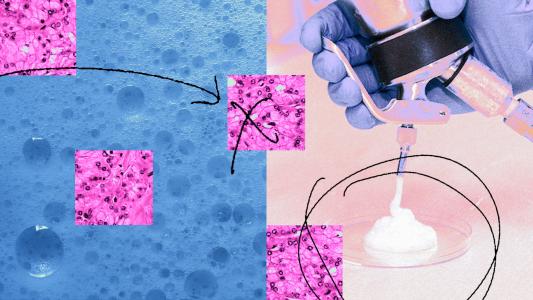A tweaked cancer treatment that clears “zombie” cells from the body could be the key to a healthier life — if it works as well in people as it does in mice.
The idea: Your body contains trillions of cells, and every day, billions of them split in two to create new cells. Most cells lose their ability to divide after about 40-60 divisions, at which point they die and are cleared from the body.
Senescent cells have been linked to cancer, Alzheimer’s, and many other age-related health issues.
Some cells continue to live after they can no longer divide, though. Those are called senescent, or “zombie,” cells, and we tend to accumulate more of them as we get older.
Because senescent cells are linked to many age-related health issues, including cancer, Alzheimer’s, and heart disease, researchers are developing drugs, called “senolytics,” to try to clear them from the body, but one immediate downside of that approach is that the drugs must be taken continually.
Researchers at Cold Spring Harbor Laboratory (CSHL) have now repurposed a cancer treatment, called CAR-T cell therapy, to clear senescent cells from the body — and it may only need to be administered once to have a life-long effect.
How it works: T cells are a type of white blood cell that play an important role in the immune system. Recently, doctors have learned how to remove these immune cells from a patient’s blood and engineer them to target cancer.
When the engineered T cells (called CAR-T cells) are put back into the patient’s body, they bind to proteins on cancer cells and help the immune system to destroy them.
“If we give it to aged mice, they rejuvenate. If we give it to young mice, they age slower.”
Corina Amor Vegas
The CSHL team discovered that they could tweak CAR-T cells to bind to a protein called uPAR, which appears in greater numbers on the surfaces of senescent cells than healthy ones. In previous research, they showed that their CAR-T cells could eliminate senescent cells in young mice.
They’ve now found that a single dose of the engineered CAR-T cells can lead to numerous health benefits in young and old mice, including improved metabolism, increased physical activity, and protection against obesity and diabetes. The effect lasts for the rodent’s entire life, too.
“If we give it to aged mice, they rejuvenate. If we give it to young mice, they age slower,” said lead researcher Corina Amor Vegas. “No other therapy right now can do this.”
Looking ahead: The CAR-T cells may have improved the health of the mice, but the CSHL researchers don’t know yet whether they can help the animals live longer, healthier lives — answering that question is next on their agenda.
“With CAR-T cells, you have the potential of getting this one treatment, and then that’s it.”
Corina Amor Vegas
Even if it does work in mice, that’s no guarantee it will work in people — and there’s still a lot we don’t understand about the role of senescent cells in the body and the effects of clearing them out. More research will be needed before we know if this treatment is a safe and effective way to slow the aging process.
“T cells have the ability to develop memory and persist in your body for really long periods, which is very different from a chemical drug,” said Amor Vegas. “With CAR-T cells, you have the potential of getting this one treatment, and then that’s it.”
We’d love to hear from you! If you have a comment about this article or if you have a tip for a future Freethink story, please email us at [email protected].






